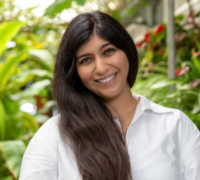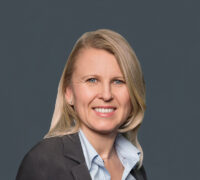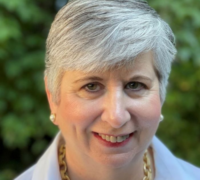Innovation is needed at breakneck speed across sectors if we are to meet our now-clear sustainability goals. We know the why (we have the data, and it’s not good), so now it’s about the how: the transition.
One of the recurring leitmotifs of the COP28 discussions is how we are going to translate ideas into action. Organizations understand that sustainability is important, but many are caught in the mire of working out how to practice it.
On day one of COP28, half a billion USD was committed but it was a backward approach; we are trying to undo the harm done. We need to look forward, meaning money must go into innovation. How fast we can bring the new tech and the data needed for the transition to those who can mobilize it will determine our success in hitting our targets.
Much of that money needs to go into women’s hands, not least because they have a greater sensitivity to the green cause and are more likely to invest in social impact. For the same reason, more women also need to be in more leading positions, including on boards.
This was a major message transmitted by both male and female global leaders at Female Quotient’s Equality Lounge, which ran alongside COP28 in Dubai.
With women on boards, ‘capital gets committed’
Research shows that the more women you have on boards, the more ESG there is. This is partly also because women tend to be more driven by purpose. And that translates into cash flow.
As thought leaders working with organizations, business schools have a major role to play in finding ways to invest this capital in strategic ways.
“We have long talked about the moral case but now we have a business case. The more women on the board the better for climate investment: capital gets committed and – importantly – gets followed through. But we often have the same women on board – the ‘usual suspects’ – so we do have work to do there,” says IMD Professor of Finance Salvatore Cantale.
He added that now is the moment for women in these roles to take risks. “After all, our options have been narrowed so much.”
Research also shows there is a direct correlation between innovation and diversity, meaning getting more women into innovation is only going to help achieve climate change goals. We should also proactively recruit more women into procurement roles.
In STEM, in particular, women often drop out. Organizations can take concrete steps to try to mitigate this, such as implementing anti-harassment policies and supporting those with childcare needs.
Company mindset starts with individuals
Inclusive companies are created by inclusive mindsets. So how can we change mindsets so that individuals are more inclusive in their thinking?



















 Audio available
Audio available